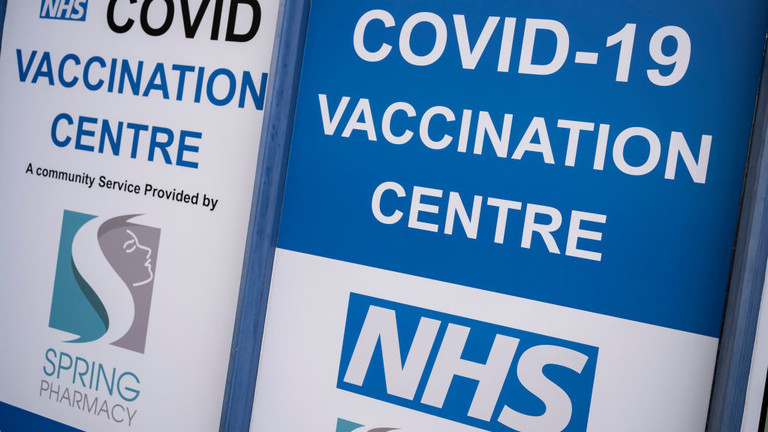Health
Covid Jabs Found to Reduce Heart Attacks, Study Says

A study finds that Covid jabs can reduce heart attacks. Read about the groundbreaking research and what it means for vaccination efforts.
Almost 46 million people’s NHS data was used by British researchers to form their conclusion.
According to recent studies conducted by British academics, getting vaccinated with any of the available Covid-19 vaccines can effectively reduce the occurrence of heart attacks and strokes while still being a safer choice despite potential adverse reactions.
Millions of de-identified health records from adult patients in England, dated between December 2020 and January 2022, were analyzed by researchers hailing from the universities of Cambridge, Bristol and Edinburgh. These medical data sets had been made available to them by the National Health Service (NHS). As per reports during that point in time period, more than 90% of individuals aged above twelve years old within UK’s population had already received a single dose vaccine shot against COVID-19.
According to Dr. Samantha Ip, the lead author of a study conducted on 45.7 million adults in England, there was no significant increase in occurrence of common cardiovascular diseases like heart attacks and strokes following administration of Covid-19 vaccines when compared to before or without vaccination.”
Based on linked data from general practices, hospital admissions and death records in a secure NHS environment, Ip and 16 other researchers drew their conclusions. Their focus was to compare the incidence of cardiovascular events before or without vaccination versus after vaccination.
Their recent findings, which were published in the journal Nature Communications this week, indicate that heart attacks and strokes declined by nearly 10% during a period of 13 to 24 weeks after receiving their initial dose of the vaccine. After obtaining a second AstraZeneca shot, it was discovered to drop even further at about 27%, while with two Pfizer shots total it decreased considerably at approximately 20%.
William Whiteley, associate director at the BHF Data Science Centre and professor at the University of Edinburgh, stated that this study conducted across England provides patients with assurance regarding the cardiovascular safety aspects related to initial doses as well as boosters in connection with Covid-19 vaccines.
According to Whiteley, the advantages of second and booster doses surpass the exceedingly uncommon cardiovascular complications.
Studies conducted in the past show an increase in cases of myocarditis and pericarditis after administering mRNA-based vaccines like Pfizer/BioNTech and Moderna. Additionally, adenovirus-based vaccines such as AstraZeneca have been associated with vaccine-induced thrombotic thrombocytopenia (blood clotting).
According to the authors, while this study affirmed those results, it did not ascertain any fresh cardiovascular ailments. However, they stated that it “provides additional reassurance” about the superiority of vaccination over risk.
Ip stated that the vaccination program has been proven to safeguard against severe [Covid]-19 and is responsible for saving countless lives globally.
A Cox regression technique was utilized in the research to determine adjusted hazard ratios and corresponding 95% confidence intervals during various time intervals following vaccination. Factors taken into account when making these estimates included comorbidities, age, sex, and any previous Covid-19 infections that may have occurred.
Opponents of vaccination mandates, which various countries such as the UK have implemented, contend that these vaccinations lack safety evaluations and do not effectively halt virus transmission. Additionally, they argue that administering vaccines to individuals who are in good health may present more significant hazards than exposure to the actual virus.
